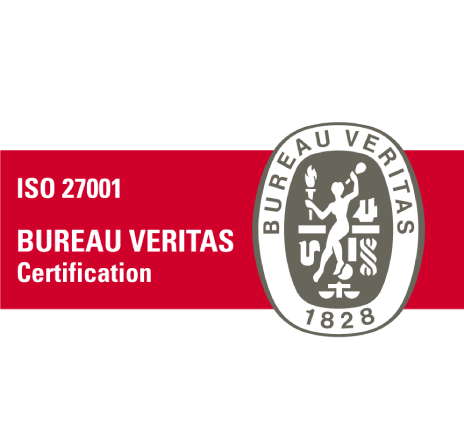Audiitorkontroll kuulub ettevõtte kontrolliprotseduuride juurde. See aitab tagada klientide ja partnerite usalduse ning pakub väärt teavet juhtimisel.
-
Projektide auditeerimine
Nõustame ja auditeerime ELi ja teiste riikide toetusfondidest rahastatavaid projekte, sh teeme juhtimis- ja kontrollisüsteemide auditeid.
-
Pakendiaudit
Teeme pakendiettevõtjatele pakendiauditeid, et anda hinnang kalendriaasta jooksul pakendiregistrisse esitatud andmete õigsuse kohta.
-
Töövahendid
Auditi sujuvamaks ettevalmistamiseks leiate siit erinevaid kinnituskirjade vorme.
-
Auditikalkulaator
Kalkulaator annab vastuse, kas ettevõtte müügitulu, varade maht või töötajate arv ületavad piiri, mistõttu peate tellima ülevaatuse või auditi.
Me ei paku valmispakette, vaid lähtume iga ettevõtte soovidest ja vajadustest.
-
Palgaarvestus
Teeme palgaarvestust nii mõne töötajaga kui ka sadade töötajatega ettevõtetele.
-
Maksuarvestus
Meie kogenud maksuspetsialistid toetavad raamatupidajaid ning pakuvad mõistlikke ning praktilisi lahendusi.
-
Aruandlus
Koostame majandusaasta aruanded. Aitame juhtimisaruannete väljatöötamisel ja koostamisel ning kohustuslike aruannete esitamisel.
-
Finantsaruannete konsolideerimine
Meie kogenud raamatupidajad ja nõustajad aitavad konsolideerimistabelite koostamisel ja konsolideerimise protsessi efektiivsemaks muutmisel.
-
Nõustamine ja ajutine personal
Meie spetsialistid nõustavad keeruliste raamatupidamistehingute tegemisel, korrastavad eelmisi perioode ja pakuvad ajutise raamatupidaja teenust.
-
Välise finantsjuhi teenus
Meie finantsjuhi teenus sobib igas suuruses ja kõikides majandusharudes tegutsevatele ettevõtetele. Pakume teenust klientidele vajalikus mahus ja kompetentsides.
-
Raamatupidamisprotsesside hindamine
Aitame sisse seada kohalikele ja rahvusvahelistele standarditele vastava raamatupidamise.
-
Raamatupidamine väikeettevõtetele
Pakume jõukohast teenust väikeettevõtetele. Aitame korraldada protsessid võimalikult nutikalt ja kuluefektiivselt.
-
Raamatupidamine krüptoettevõtetele
Hoiame ennast plokiahelatehnoloogiaga kursis, et teenindada ja nõustada krüptoettevõtteid. Meile on toeks kolleegide võrgustik 130 riigis.
-
Koolitused
Meie raamatupidajad on pädevad kõikidel raamatupidamise ja aruandluse teemadel. Teeme koolitusi ka klientidele, et oma teadmisi edasi anda.
Seotud artiklid:


Kasvukursil
„Esimesel päeval ütlesid kõik, et lähevad haiguslehele.” Kuidas tarkvaravahetus vussi läks
Väiksemas ettevõttes võib uue tarkvara juurutamine võtta kolm-neli kuud, suurettevõtetes ka paar aastat. Muudatuste juhtimine on erakordselt oluline, et vahetus õnnestuks.
Teeme palgaarvestust nii mõne töötajaga kui ka sadade töötajatega ettevõtetele. Me ei paku valmispakette, vaid lähtume alati iga ettevõtte soovidest ja...
Pakume ettevõtjatele igakülgset juriidilist nõu, et kaasa aidata nende majanduslikule edule.
-
Äritegevuse juriidiline nõustamine
Pakume tuge nii alustavale kui laienevale ettevõttele, hoolitsedes selle eest, et kõik juriidilised sammud oleksid detailideni läbi mõeldud.
-
Fintech nõustamine
Meie juristid nõustavad makseasutusi, virtuaalvääringu teenuste pakkujaid ja finantseerimisasutusi.
-
Ühinguõigus ja tehingute nõustamine
Nõustame õigus-, maksu- ja finantsküsimustes, mis on vajalikud ettevõtte juriidilise või organisatsioonilise struktuuri paremaks juhtimiseks.
-
Juriidiline due diligence
Analüüsime põhjalikult ühendatava või omandatava äriühingu sisedokumente, õigussuhteid ning äritegevuse nõuetelevastavust.
-
Lepinguõigus
Koostame lepingud, mis vastavad majanduslikult ja õiguslikult Teie ettevõtte parimatele ärihuvidele.
-
Tööõigus
Nõustame kõigis tööõiguse küsimustes, aitame töölepingute ettevalmistamisel, muutmisel või lõpetamisel, ametijuhendite ja sisekordade väljatöötamisel.
-
Saneerimine
Meie ekspertidel on kogemus saneerimisnõustajatena, aitame ettevõtjatel saneerimist läbi viia.
-
Majasisese juristi teenus
Teenus on mõeldud ettevõtjatele, kes otsivad usaldusväärset koostööpartnerit ettevõtte igapäevaste juriidiliste küsimuste lahendamiseks.
-
Kontaktisiku teenus
Pakume välisriigis asuva juhatusega Eesti äriühingutele kontaktisiku teenust.
-
Koolitused
Korraldame nii avalikke kui ka kliendi tellitud koolitusi aktuaalsetel õigus- ja maksuteemadel.
-
Rikkumisest teavitamise kanal ehk vihjeliin
Pakume oma klientidele usaldusväärse vihjeliini ülesehitamist, töösse rakendamist ja tuge selle toimimas hoidmisel.
Seotud artiklid:


Tööõigus
Raport: ülevaade 15 riigi kaugtöö praktikatest
Ülevaade 15 riigi kaugtöö arengutest enne, ajal ja pärast Covid-19 pandeemiat.
Olgu Teie ettevõte alles alustav, kiiresti kasvav või stabiilses eluetapis – Teil on aeg-ajalt vaja asjatundlikku nõu, et langetada õigeid otsuseid.
-
Ärimudeli või -strateegia uuendamine
Edukas olemiseks peab igal ettevõttel olema kindel strateegia ehk teadmine, mis suunas kogu meeskond liigub. Aitame Teil sihte seada!
-
Turundus ja kliendihaldus
Toetame Teid turundus- ja brändistrateegia ning kliendihaldussüsteemi uuendamisel, et suudaksite praegusel kiirete muutuste ajal kohaneda.
-
Coaching ja juhi arengutugi
Hea organisatsioonikultuur on ettevõtte jaoks nagu trump kaardimängulauas. Juhendame Teid, kuidas trumpkaarte koguda!
-
Digiteenused
Tänapäeval ei ole küsimus selles, kas digiteerida, vaid kuidas seda teha. Aitame Teil välja töötada ja juurutada nutikad digilahendused.
-
Äriplaani koostamine
Hea äriplaan on ettevõtjale teejuht ja juhtimisvahend ning finantseerijatele ja potentsiaalsetele investoritele otsuse langetamiseks vajalik infoallikas.
Seotud artiklid:


Infoturve
Saime ISO 27001 infoturbe juhtimissüsteemi sertifikaadi
Bureau Veritas väljastas novembris Grant Thornton Balticule ISO 27001:2022 sertifikaadi. mis kinnitab, et meil tuvastatakse, hinnatakse ja juhitakse infosüsteemidega seonduvaid turvariske pidevalt ja nõuetele vastavalt.
Pealiskaudne suhtumine ettevõtte arengu planeerimisse ja finantside juhtimisse võib olla raskustesse sattumise põhjus.
-
Due diligence
Teeme hoolsusauditi ehk due diligence’i, et investorid saaksid enne planeeritud ostutehingut ettevõttest põhjalikku ülevaate.
-
Tehingute nõustamine
Nõustame Teid kõikides ostu- või müügitehingu protsessi olulistes aspektides.
-
Väärtuse hindamine
Hindame ettevõtte turuväärtust, varade väärtust ja teisi varagruppe rahvusvaheliselt aktsepteeritud metoodika alusel.
-
Registreeritud eraeksperdi teenused
Meie kogenud registreeritud eraekspet annab hinnanguid majandus- ja finantsalal.
-
Äriplaanid ja finantsprognoosid
Rahavoo puudulik planeerimine ja kontroll on sageli ebaõnnestumise põhjus. Aitame Teil koostada korralikke prognoose, et äririske vähendada.
-
Välise finantsjuhi teenus
Meie finantsjuhi teenus sobib igas suuruses ja kõikides majandusharudes tegutsevatele ettevõtetele. Pakume teenust klientidele vajalikus mahus ja kompetentsides.
-
Saneerimine
Meie kogenud saneerijad pakuvad võimalusi ettevõtte majanduslike raskuste ületamiseks ja likviidsuse taastamiseks, et edaspidi jätkusuutlikult majandada.
-
Restruktureerimine ja reorganiseerimine
Pakume individuaalseid terviklahendusi ettevõtete struktuuri korrastamisel.
Pakume laiapõhjalist maksunõustamisteenust. Meie meeskonnal on pea 25-aastane maksunõustamise kogemus, sh tunneme eri riikide maksusüsteeme.
-
Ettevõtte maksustamine
Anname nõu kõigis ettevõtte maksustamisega seotud küsimustes.
-
Käibemaks jm kaudsed maksud
Põhjalik info käibemaksu, aktsiiside ja tollimaksude kohta nii siseriiklikul kui ka rahvusvahelisel tasandil.
-
Rahvusvaheline maksustamine
Anname nõu välisriikide maksusüsteemide ja rahvusvaheliste maksuregulatsioonide asjus, sh tunneme piiriülese aruandluse nõudeid.
-
Siirdehinnad
Aitame planeerida ja dokumenteerida kõiki aspekte ettevõtte siirdehindade strateegias.
-
Tehingute maksustamine
Planeerime ettevõtte omandamise, võõrandamise, refinantseerimise, ümberstruktureerimise, võlakirjade või aktsiate noteerimise maksutagajärgi.
-
Töötajate piiriülene maksustamine
Eesti ettevõtte töötaja välismaal ja välisettevõtte töötaja Eestis – anname nõu maksureeglite kohta.
-
Maksuriskide audit
Teeme maksuauditi, mis aitab diagnoosida ja piirata maksuriske ning optimeerida maksukohustusi.
-
Kliendi esindamine maksuametis
Ennetame maksuprobleeme ning tagame sujuva suhtluse maksu- ja tolliametiga.
-
Füüsilise isiku maksustamine
Nõustame eraisikuid füüsilise isiku tulu maksustamise küsimustes ja vajadusel esindame klienti suhtluses maksu- ja tolliametiga.
-
Balti riikide maksusüsteemide võrdlus
Meie maksuspetsialistid on koostanud Balti riikide maksusüsteemide võrdluse ettevõtete ja eraisikute maksustamise kohta.
Kui soovite ettevõtte kasvatamiseks konkurendi ära osta või hoopis oma ettevõtte müüa, saavad Grant Thornton Balticu nõustajad Teid aidata. Meie juures saate...
Meie kogenud spetsialistid aitavad Teie organisatsioonis regulaarselt hinnata eesmärkide täitmist ohustavaid riske.
-
Siseauditi teenus
Aitame Teid siseauditi funktsiooni täitmisel, siseauditite ja nõuandvate tööde tegemisel, valitsemise hindamisel ja töötajate koolitamisel.
-
Finantssektori siseaudit
Saame toetada siseauditi funktsiooni loomisel juba finantssektoris tegutsemiseks vajaliku tegevusloa taotlemisel.
-
Projektiaudit
Teeme Euroopa Liidu fondidest, riigieelarvest, välisabist või muust allikast toetusi saanud projektide auditeid.
-
Rahapesu tõkestamine
Aitame koostada rahapesu riskihinnangut ja tõhusaid rahapesu tõkestamise protseduure, teeme valdkonna siseauditeid ja koolitusi.
-
Riskide hindamine ja haldamine
Nõustame Teid riskide hindamisel ja riskide haldamise süsteemi loomisel.
-
Eritööd
Teeme Teie soovil konkreetse eesmärgi ja ulatusega auditeid, kontrolle ja analüüse.
-
Kvaliteedimärk
Hindame raamatupidamisettevõtete tegevuse nõuetelevastavust kvaliteedimärgi „ERK tunnustatud raamatupidamise ettevõte“ taotlemisel.
-
Siseauditi välishindamine
Hindame Teie ettevõtte siseauditi kvaliteeti või anname sõltumatu kinnituse enesehindamisele.
-
Rikkumisest teavitamine ettevõttes
Aitame luua rikkumisest teavitamise süsteemi Teie ettevõttes. Pakume nii kogu süsteemi kui ka selle mõne etapi ülesehitamist.
Meie kogenud ja sertifitseeritud spetsialistid tagavad, et meie teenused on kvaliteetsed ning vastavad täpselt iga kliendi vajadustele ja eripäradele.
-
Infoturbe juhtimine
Pakume Teile infoturbe juhtimise teenust, mis optimeerib ressursse, annab ülevaate turvaolukorrast ning tagab vastavuse õigusaktidele ja standarditele.
-
Infoturbe teekaart
Õigusaktidele, standarditele ja nõuetele vastavuse saavutamine.
-
Infoturbe siseaudit
Meie spetsialistid aitavad avastada ja parandada infoturbe puudujääke, kontrollides organisatsiooni vastavust õigusaktidele ja standarditele.
-
Koostööpartnerite haldus
Meie spetsialistid aitavad vähendada riske, mis on seotud kolmandate osapoolte teenuste kasutamisega.
-
Infoturbe koolitused
Pakume mitmesuguseid koolitusi ja teadlikkuse suurendamise programme, et tagada kõigi osapoolte teadlikkus infoturbe nõuetest, nende vastutusest teenusepakkujate valikul ning võimalikest riskidest.
-
Digitaalse tegevuskerksuse määrus (DORA)
Aitame luua Teie ettevõtte vajadustele vastava DORA rakendusmudeli, mis tagab 2025. aasta jaanuariks määratud tähtajast kinnipidamise.
Seotud artiklid:


Infoturbe teenused
Usaldus, mis murdub: kuritarvitused Google’i ja Microsofti abil
Artikkel selgitab, kuidas ründajad kasutavad ära usaldusväärseid tehnoloogiaid – nagu OAuth ja DKIM – ja miks peab olema eriti tähelepanelik, kui meilisõnum või rakendus küsib õigusi sinu kontole ligipääsuks.
Aitame lahendada keskkonna, sotsiaalse kapitali, töötajate, ärimudeli ja hea juhtimistavaga seotud küsimusi.
-
ESG nõustamine
Aitame lahendada keskkonna, sotsiaalse kapitali, töötajate, ärimudeli ja hea juhtimistavaga seotud küsimusi.
-
ESG audit
Meie audiitorid kontrollivad ja kinnitavad kestlikkuse aruandeid kooskõlas rahvusvaheliste standarditega.
-
Kestlikud investeeringud
Aitame investoreil teha huvipakkuva ettevõtte keskkonnateemade, sotsiaalse vastutustundlikkuse ja hea juhtimistava analüüsi.
-
Kestlik maksukäitumine
Meie rahvusvahelise maksunduse spetsialistid määratlevad kestliku maksukäitumise kontseptsiooni ja pakuvad jätkusuutliku maksukäitumise teenuseid.
-
ESG juhi teenus
Alati ei pea ettevõttesse palkama ESG juhti. Seda saab ka kokkulepitud mahus teenusena sisse osta.
Seotud artiklid:


Kestlikkuse teenused
Kestlikkuse mitu palet
Viimastel kuudel on olnud palju juttu kestlikkuse aruandluskoormuse vähendamisest ettevõtetele ja Euroopa Komisjoni soovist aruandlust lihtsustada.
Pakume võimalust osta personaliteenuseid sisse täpselt sellises mahus ja just selles töölõigus, mida parasjagu vajate.
-
Personaliotsing
Aitame Teie ettevõttes ametikohad täita kompetentsete ja pühendunud töötajatega, kes aitavad ellu viia ettevõtte strateegilisi eesmärke.
-
Värbamise tugiteenused
Tugiteenused aitavad välja selgitada kandidaatide vastavuse ettevõtte ootustele. Enamkasutatud tugiteenused on kandidaadi testimine ja hindamine.
-
Personalijuhtimise protsesside juurutamine
Võtame personalijuhtimisega seotud protsesside juhtimise ja käivitamise kas täielikult enda peale või oleme personalijuhile toetav ja nõuandev partner.
-
Personaliaudit
Kaardistame personalijuhtimise protsesside olukorra ja anname ülevaate, kuidas hinnata organisatsiooni tervist personalijuhtimise seisukohast.
-
Personalitöö dokumentatsioon
Toetame ettevõtteid personalitööga seotud dokumentatsiooni ja eri töökorralduse protsesside korrektse vormistamisega.
-
Personaliuuringud
Aitame teha eesmärgipäraseid ja kvaliteetselt koostatud personaliuuringuid. Analüüsime tulemusi ja toome välja järeldused.
-
Personalijuhi teenus
Pakume ettevõtetele nii ajutist kui ka püsivat/pikaajalist personalijuhi teenust.
Seotud artiklid:


Ettevõtte kultuur
Kogemus: väärtuspõhine kultuur töögrupi toel
Millest alustada, kui ette võttel puudub nii personalijuht kui -poliitika ning töötaja soovitusindeks on pealegi negatiivne? Hindamatut kogemust jagavad Grant Thornton Balticu personalijuht Marge Litvinova ja värbaja Kätlin Treima.
Grant Thornton Digital aitab Teil välja töötada ja juurutada nutikad digilahendused, mis viivad Teie äri uuele tasemele.
-
Digistrateegia
Aitame hinnata Teie organisatsiooni digiküpsust, töötame välja vajaduste ja võimalustega kooskõlas oleva strateegia ja võtmemõõdikud.
-
Nutikas automatiseerimine
Meie abiga saate suurendada äriprotsesside efektiivsust ning parandada klientide ja töötajate kasutajakogemust.
-
Ärianalüütika
Meie kogenud spetsialistid aitavad Teil andmeid taltsutada, et ettevõtte juhtimine oleks andmepõhine.
-
Infoturve
Läbimõeldud ja ennetav küberstrateegia pakub kindlustunnet ja võimalust keskenduda ettevõtte kasvupotentsiaali realiseerimisele.
-
Targa tellija teenus
Keskmiselt ebaõnnestub iga neljas projekt ja iga teine vajab muudatusi. Aitame juhtida Teie ettevõtte digilahenduste innovatsiooni!
-
Digitaalne hoolsusaudit
Teeme omandatava või ühendatava ettevõtte oluliste IT-küsimuste hoolsusauditi, sh analüüsime infosüsteeme ja nende jätkusuutlikkust.
Seotud artiklid:


Kasvukursil
Appi, me peame oma ettevõtte küberturvalisuse üle vaatama?! Millised on uued euroreeglid?
Räägime infoturberegulatsioonidest ja standarditest Eesti ärimaastikul ning sellest, millised uued regulatsioonid peagi Euroopast tulemas on.
Ühena vähestest Eesti nõustamisettevõtetest oleme kompetentsed pakkuma virtuaalvääringuteenuste osutajatele (VASP) tugiteenuseid, näiteks raamatupidamist,...
Miks töötada Grant Thorntonis? See on rohkem kui lihtsalt töö. Meie juures ootab Sind huvitav töö mitmekülgsete tööülesannetega ja seda juba esimesest...
Väljakutsetel pole piire. Oled Sa valmis? Meie juures ootab Sind huvitav töö mitmekülgsete tööülesannetega ja seda juba esimesest tööpäevast alates, väga hea...
Meie juures kasvab Sinust tegija. Oled Sa valmis? Meie juures ootab Sind huvitav töö mitmekülgsete tööülesannetega ja seda juba esimesest tööpäevast alates,...
Vabad töökohad
Loe, mida meie inimesed on öelnud oma töö, kolleegide ja muude tööga seotud teemade kohta.
-
Eliis Talisainen
Töökohavahetus võib olla paras õnnemäng – kunagi ei tea, kas klapid uue organisatsiooni ja kolleegidega. Juhtival õigusnõustajal Eliis Talisainenil läks õnneks: ta tundis end Grant Thornton Balticus juba esimestest päevadest peale omaksvõetuna.
-
Ene Rahula
Kolm aastakümmet samas ettevõttes töötada on tänapäeval pigem erand. Meie raamatupidaja Ene Rahulal 16. märtsil 2023 meie ettevõttes 30 tööaastat.
-
Eve Lille
Eve tuli Grant Thornton Balticusse finants-ja maksunõustajana tööle 2022. aasta veebruaris ning ta kinnitab, et see teekond on olnud äärmiselt põnev ja väljakutseid pakkuv.
-
Helena Pokmann
Helena liitus meie ettevõttega 2020. aastal auditi vanemkonsultandina ning on nüüdseks tõusnud auditi nooremjuhi rolli. Ta hindab kõrgelt ettevõtte ja meeskonna tugevat toetust.
-
Jelena Leoško
Jelena liitus meie ettevõttega 2017. aastal ja alustas nö nullist, sest tema senine kogemus oli logistikavaldkonnas. Tänaseks on Jelena hinnatud raamatupidaja ja raamatuidamise grupijuht.
-
Kai Paalberg
Kai taaskäivitas edukalt riskijuhtimise valdkonna. Ta saab ühtviisi ladusalt hakkama nii siseauditite tegemisega kui ka meeskonna juhtimisega.
-
Kristjan Järve
Kristjan on rohkem kui 20 Grant Thornton Balticus töötatud aasta jooksul üles ehitanud eduka maksunõustamise valdkonna ja kasvanud maksunõustajast ettevõtte partneriks.
-
Lenel Prisk
Leneli teekond Grant Thornton Balticus algas 2022. aasta juulis üle ootuste hästi. Juba enne oma esimest tööpäeva tundis Lenel, et see võibki olla õige organisatsioon just tema jaoks.
-
Liis Aaviku
Raamatupidaja Liis Aaviku on olnud seotud Grant Thornton Balticuga juba üle 15 aasta, kasvades nooremaamatupidajast raamatupidamise grupijuhiks.
-
Mari Lehtsaar
Auditijuht Mari Lehtsaar on Grant Thornton Balticus töötanud üheksa aastat. Selle ajaga on ta jõudnud kindlale veendumusele: Grant Thornton Balticus hoitakse inimesi.
-
Meeli Tali-Aruväli
Meeli liitus meiega auditijuhina 2020. aastal. Teda üllatas väga toetav ja ühtehoidev meeskond. Meeli ütleb julgelt, et iga meie tiimiliige on väärtuslik, teda hinnatakse ja hoitakse.
-
Merle Rõbovõitra
Merle Rõbovõitra alustas raamatupidajana arveid sisse toksides, nüüd defineerib ta oma tööd pigem inimeste kui numbrite ärina.
-
Ragne Lehtsaar
2021. aastal auditi noormekonsultandina tööd alustanud Ragne on tänaseks auditi vanekonsultant. Ragnele meeldib, et ta töö on põnev, tema arengut toeatv ja paindlik.
-
Ruth Nõmmik
Nooremraamatupidaja Ruth Nõmmik kinnitab, et Grant Thornton Balticus on iga uus ülesanne põnev, sest iga kliendiga seotud töö on erinev ja alati on midagi uut, mida õppida.
-
Tarmo Rahkama
Tarmo on kasvanud assistendist auditijuhiks ja vandeaudiitoriks ning 2020. aasta sügisel sai temast ettevõtte partner. Tarmo hindab väga inimestevahelist koostööd ja torediad kolleege.
-
Tatjana Raskatova
Tatjana jaoks on töö Grant Thorntonis olnud positiivne kogemus, uue töötaja sisseelamine on hästi organiseeritud ja töötajat toetavad alati tiimijuht ja tiimikaaslased.
Meie maksuspetsialistid on koostanud Balti riikide maksusüsteemide võrdluse ettevõtete ja eraisikute maksustamise kohta.
1. Summary
2. Companies
3. Individuals
4. Value Added Tax
5. Other taxes
Kas Teil on küsimusi?
Kui Teil on sarnased väljakutsed ja Teil tekkis küsimusi, võtke palun ühendust meie spetsialistidega.











